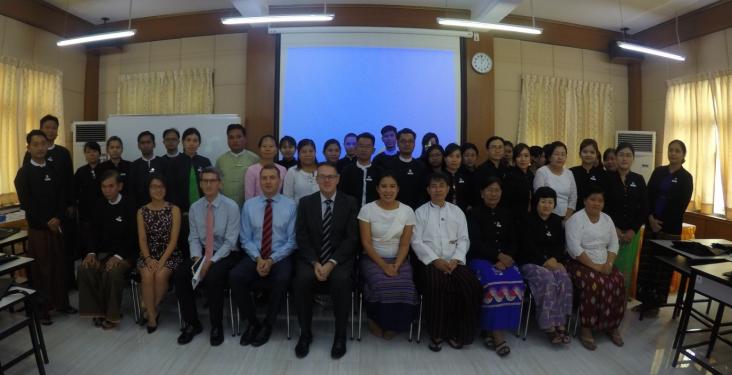
The burgeoning economy in Myanmar is creating much opportunity in the country but this is putting a strain on the judicial system which is trying to keep pace with development. The Juris Pilot addresses the need for greater knowledge of international contract law by training government legal staff. Sharing knowledge between professionals advances SDG 16.3 to promote the rule of law at the national and international levels.

Many countries are experiencing economic benefit from a surge in tourism, but once pristine landscapes are changing and local communities rarely benefit from the tourism, and instead run the risk of losing their livelihoods. Researchers in Thailand are investigating “creative tourism” – creative, sustainable approaches to tourism, that enable producers and consumers to relate and get value from their connections. This supports the tourism elements of SDGs 8, 12 and 14.

This article highlights the winning proposals of the second edition of the Elsevier Foundation Green & Sustainable Chemistry Challenge. The winning proposals were chosen for their innovative green chemistry aspects and their large positive impact on the environment, contributing to SDGs 3, 8, 13 and 15.

The marketing value of the concept of ecotourism is now very low, as there is very little evidence that it delivers. Many people in the developing world are unable to visit National Parks and suffer only negative impacts – loss of access for meat, fruits, thatching grass and land for agriculture. How does a consumer or tour operator identify wildlife operators and conservancies that are really making a contribution? Either to wildlife and habitat conservation or to the livelihoods of local communities to ensure that they benefit from conservation?

This article highlights one of the winning proposals of the Elsevier Foundation Green & Sustainable Chemistry Challenge - “Biopesticides for improved paddy yield” - led by researcher Dr. Suzana Yusup. Her work shows how bio-pesticides can be safer and more effective than traditional pesticides, contributing to SDGs 8, 12, 13 and 15.
Four years after the Rana Plaza factory collapse, this article gives insight into the modern slavery risks in the garment industry, as well as 6 steps for companies to demonstrate their commitment to transparency. This is in line with SDG 8 Decent work and economic growth, in particular SDG target 8.7 which is to take immediate and effective measures to eradicate forced labour, end modern slavery and human trafficking and secure the prohibition and elimination of all forms of child labour.
This chapter addresses SDG10 and SDG8 by conducting a comprehensive review of the prevalence of economic discrimination, the consequences of such discrimination, and possible approaches to undermine it.
Sustainability theory shows that the sustainability problem is a value orientation problem.
Detailed description of Goal 8 (Decent Work and Economic Growth) with introductory remarks from the ILO Director-General, Guy Ryder
Linking to Goal 8, this webinar discusses promoting transparency in the supply chain and anti-corruption
